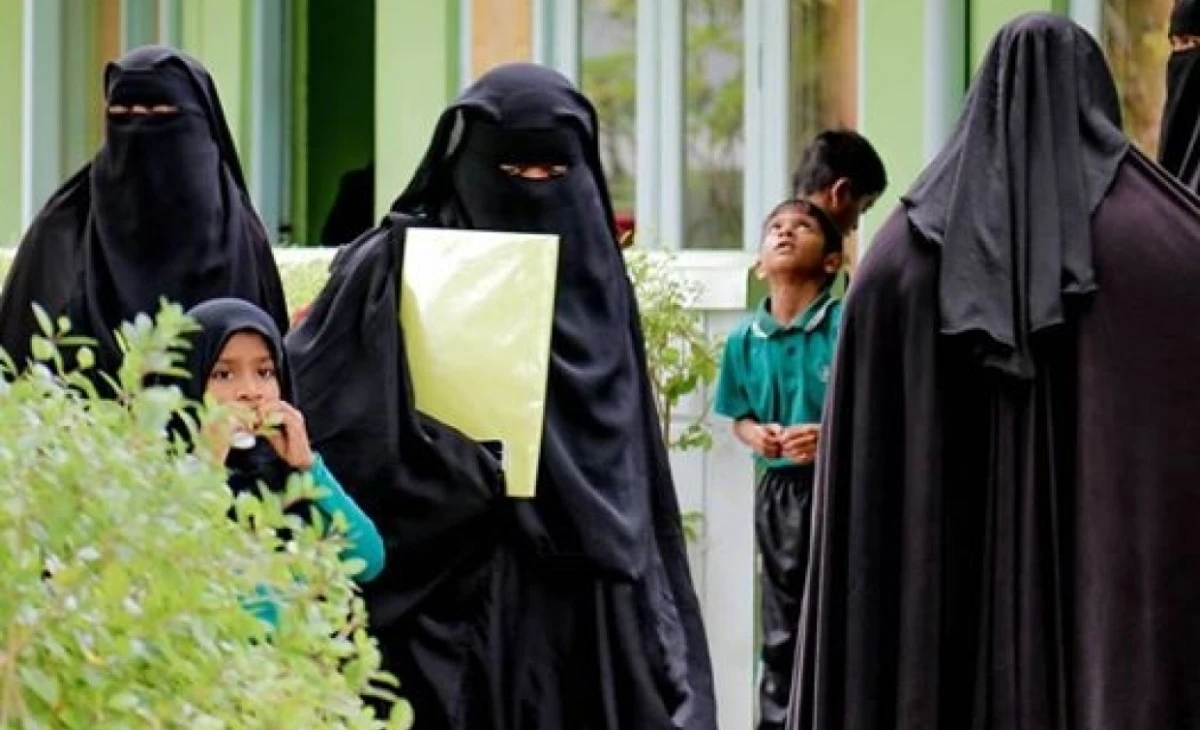Fri, 06 Feb 2026
|DHIVEHI
Degrees no longer hidden: Civil Service embraces niqab-wearing women
16 Sep 2025
|

Women wearing niqab-- Photo: Sun Online
For decades, many Maldivian women who wear the niqab feared that the careers they had studied so hard for might never be within reach. Despite earning degrees in teaching, law, public health, and administration, they often faced a silent barrier: civil service regulations that required employees to keep their faces uncovered for identification.
That obstacle has now been lifted. A recent amendment by the Civil Service Commission allows women wearing the niqab to work in government jobs, provided they carry an identification card or name tag when their duties require verification. Few weeks ago the Judicial Employee Regulations was also amended to allow female judicial employees to wear the niqab at work. The change recognises professional ability over appearance and marks a significant step toward a more inclusive public sector.
The impact is already visible. Graduates who once wondered if their education would go unused are submitting applications for roles in schools, hospitals, and government offices, Judicial sector across the atolls. Recruitment teams report a rise in interest from qualified women who can now serve their communities without compromising their beliefs.
One experienced professional in the judicial field, who asked to remain anonymous, shared her delight at finally being able to put her qualifications to use. She said this reform is the most welcome change to the regulations so far, noting that the previous rule had infringed on the rights of many educated and capable people.
"With this change, the spirit of serving the Government with a whole new hope and enthusiasm is revived. I am very, very happy today. The Government of the Maldives has proved that all the degrees achieved should not be written on paper and kept hidden" - she explained
Her words echo the sentiments of many who have long awaited an opportunity to work without compromising their religious practices. For these women, the amendment brings not just a career path but validation that professional aspirations and faith can coexist.
This shift is part of a broader effort to widen opportunities in the civil service and reflect the diversity of Maldivian society. It also expands the talent pool for government agencies, ensuring that skills and knowledge, rather than dress, define who can contribute to public service.








